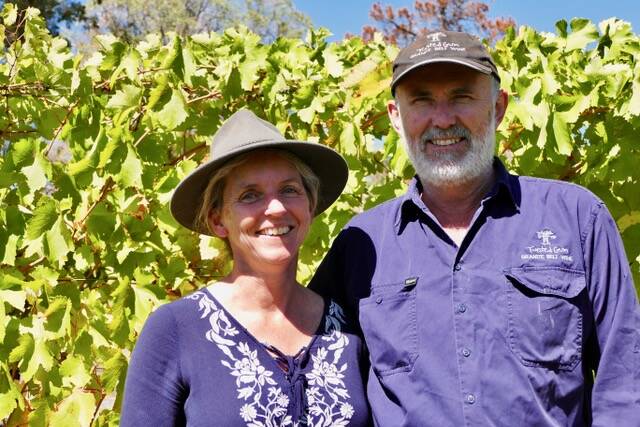
The autumn colours of the vines are gorgeous this time of year on our vineyard in Queensland's Granite Belt, with the native forest surrounding us also displaying a peppering of greens, browns and oranges. From a distance it looks almost European.
Subscribe now for unlimited access.
or signup to continue reading
Almost, but not quite. The orange and browns are dead and dying eucalypts, the fall-out from the hottest summer on record and dry start to autumn which the Bureau of Meteorology's latest State of the Climate outlines in depressing detail.
When we first purchased this vineyard we knew that the climate was changing and that water resources would be scarce. And conditions have been as expected.
Last year was one of the toughest seasons on record. We received just 500mm out of an annual "average" rainfall of 760, with the start this year drier still.
Like other farmers, we planned as well as we could for dry conditions. We spread large amounts of mulch under vine and also made an early decision to take one of our newer vineyard blocks out of production.
From the beginning, we set up our operation to run without irrigation. We spent time building carbon in the soil to retain moisture.
We set aside three quarters of our property to native vegetation, so beneficial insects and birds could replace insecticides. And we installed a 10kw solar system to safeguard us against rising energy prices.
Many of these on-farm decisions have been "no-brainers" because they improve the bottom line and also have positive environmental impacts.
The recent Farmers for Climate Action conference in Stanthorpe, Queensland, gave great insights into what other farmers and sectors are doing to manage climate risk and reduce global warming.
It is clear that we can have a bright future if everyone - not just farmers - acts quickly.
But frustratingly governments have chosen to ignore the overwhelming scientific and economic advice on how best to address this critical problem.
Farmers are at the forefront of the brutal effects of climate change and have a clear capacity to contribute to its solution.
But this cannot be achieved without a coordinated approach from State and Federal governments to climate change and agriculture in our country.
The autumnal colours that we can see out our window should be seen for what they are - warning signs that change is happening, and we need to act now.
Michelle and Tim Coelli are wine makers, parents and Farmers for Climate Action supporters

